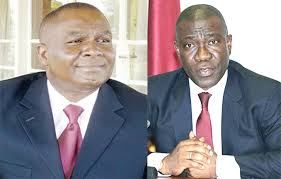Breaking News
Reps Move To Ban Public, Civil Servants From Using Private Hospitals, Schools

The House of Representatives has taken a bold step towards revamping Nigeria’s public service sector as it passed for first reading a bill seeking to prohibit public and civil servants from patronising private schools and health care facilities.
The proposed legislation, titled “A Bill for an Act to Prohibit Public and Civil Servants from Patronising Private Schools and Health Care Services and for Related Matters (HB 2487),” was sponsored by Hon. Amobi Ogah, who represents Isuikwuato/Umunneochi Federal Constituency of Abia State.
If passed, the bill will make it mandatory for elected officials, political appointees, and civil servants—along with their family members—to use only public educational and health institutions.
Speaking on the rationale behind the proposed law, Ogah said, “This bill intends to avoid conflict of interest, maintain public trust, and ensure high, uncompromised standards in our public institutions.”
He argued that allowing public officials to abandon the very institutions they are responsible for managing weakens national development and accountability.
Describing the bill as a patriotic move, the lawmaker called on Nigerians from all walks of life to lend their voices in support of the proposed legislation.
“This is a call to national rebirth. If those in charge of the country’s education and health care systems do not use them, then why should ordinary citizens trust or rely on them?” Ogah asked.
He urged civil society organisations, the media, and the general public to throw their weight behind the bill, which he says aims to revive faith in the country’s failing public sector.
The bill has only passed its first reading and will now proceed to the second reading, where it will face full debate and possible amendment.
If eventually passed into law, it could spark a radical change in the structure and performance of Nigeria’s public service delivery systems.





























